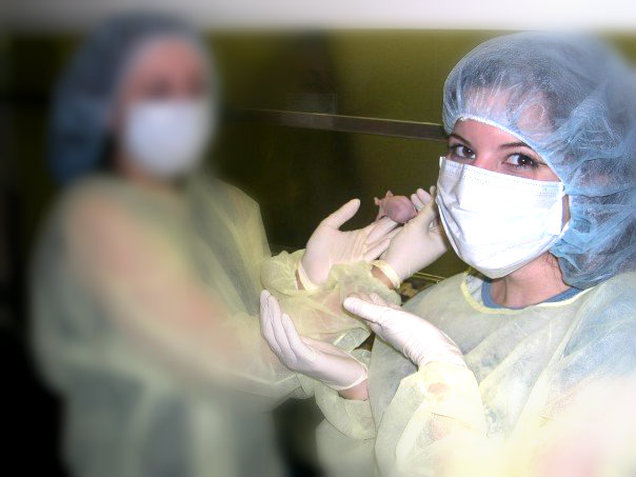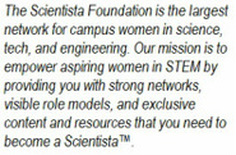|
By Julia Tartaglia You know the old saying, “Hindsight is 20/20.” In high school, when you are picking classes, choosing extracurriculars, or preparing for college, it’s hard to know if you’re making the right decisions. After all, how can you know which courses will prepare you for your future major if you have never taken a college course? With the benefit of both high school andcollege experience, I’m here to share my hindsight 20/20 guide to high school, the biology major edition. Follow these steps to and you’ll be well on your way to success as a college biology major. What I’d do again: Science Research Perhaps the best decision of my scientific career was beginning research in high school. I was fortunate enough to work in an immunology lab at New York Medical College during the summer of my junior year (see above picture!). Working on my own project helped me to discover my passion for the scientific process and the excitement of making a discovery. My lab experience proved useful during the college admissions process and boosted my credentials when I was applying to lab positions. It also provided me with useful skills when I found myself behind the bench in college. Learning how to collect data, however, isn’t the only valuable aspect about the experience. In college, many students go on to write theses, which may or may not include an oral defense (mine did!). If you’re lucky, you may even have your work published and then have the opportunity to present your work at fairs for peers, professors and colleagues. My experience of competing in high school science fairs, such as WESEF, prepared me for this process. I learned to make posters, to practice explaining my technical jargon in lay term and to speak to professionals in the field at a young age. If you have a science research program at your school, join it. Take Advanced Science Courses Academically, university science programs are challenging. They require you to think analytically by applying the concepts you learn in class to new materials. Once you enter college, many classes also expect you to have a basic foundation in the sciences. If you don’t, you may find yourself falling behind. One of the most important decisions I made was to take AP classes in both science and math. Challenging myself in these classes earlier helped me to prepare for the academic rigors of college. Get Involved in Extracurriculars Participating in student organizations gives you a chance to explore your passions, and these can be, and sometimes should be, unrelated to science. I took on leadership roles in my favorite clubs, which developed my management and people skills. If you dream of one day of leading your own lab, classroom, or biotech company, it is important to start honing these skills at an early age. Being involved in organizations not only teaches you to be a leader, but also teaches you to manage your time effectively. In college, you will be taking a rigorous workload of science prerequisites, complete with lab, problem sets and exams. Time management skills will be key. By getting involved in clubs, I also became a more well-rounded student. The most innovative ideas can come to you when you keep an open mind and look outside your field. And most importantly, extracurricular involvement is an essential component of college applications since colleges like to see that you are passionate about a hobby, no matter what that is. What I’d do differently Try Computer Science When I was in high school, I always assumed that programming was only for gamers and “brogrammers.” I thought it would be challenging and boring, so I didn’t see it as a topic that I’d find particularly useful. It wasn’t until mid-college that I realized my interest in computer science and its broader applications, and it wasn’t until my senior year of college that I worked up the courage to enroll in a class. Perhaps my biggest regret is not trying CS or engineering in high school. Take More Quantitative Classes You can never take too many math or quantitative classes. No matter which field you ultimately go into, you are infinitely more valuable if you have a solid background in statistics and mathematics. These are the foundation of most sciences, and if I could go back, I would have taken AP Statistics, Physics and Calculus BC. Take Public Speaking/Writing Classes Even as a science major, don’t underestimate how important communication skills are. Scientists must be able to clearly present and explain their arguments. Many scientists make the mistake of not honing their writing or speaking skills. If you have an extra elective in your schedule, try adding in a drama or creative writing class. Both will strengthen your communication skills, which will come in handy in college. This post was originally published as a guest blog in CampusGlimpse. About the Author
Comments? Leave them below!
1 Comment
Victoria
1/8/2014 12:51:53 am
Wow thank you! This answers so many questions that I had but I never knew how to ask. This is great! Thank you again!
Reply
Your comment will be posted after it is approved.
Leave a Reply. |
Education BlogAbout ScientistaSubscribe!NEW!New PostsWhat's HotClick to set custom HTML
You Might Like...
Connect With UsLatest tweets |
The Scientista Foundation, Inc. All Rights Reserved © 2011-2021 | Based in NY | [email protected]
The Network for Pre-Professional Women in Science and Engineering
The Scientista Foundation is a registered 501(c)(3) -- Donate!
The Network for Pre-Professional Women in Science and Engineering
The Scientista Foundation is a registered 501(c)(3) -- Donate!




 RSS Feed
RSS Feed









